Jericho’s Tell es-Sultan, oldest Palestinian agricultural town, inscribed as World Heritage SiteAncient Jericho named UNESCO World Heritage Site in West Bank
The UN cultural agency UNESCO has selected the ancient city of Jericho/Tell es-Sultan in the occupied West Bank as a World Heritage Site in Palestine
The site was placed on the famous UNESCO list as the oldest known agricultural and permanent human settlement that dates back to 10,000 BC.
Located 1.5 kilometers north of modern Jericho and 10 kilometers northwest of the Dead Sea, the ancient city sits 250 meters below sea level along the Jordan Rift Valley – making it the lowest ancient town on earth.
The site is an oval-shaped tell, or mound, that contains the prehistorical deposits of human activity.
In a statement on Sunday, Palestinian Minister of Tourism and Antiquities Rula Maayah said Palestinians succeeded in listing Tell es-Sultan during the 45th session of the UNESCO World Heritage Committee in the Saudi capital, Riyadh.
Five Palestinian sites are now designated by UNESCO on the World Heritage Sites list: The Old City of Jerusalem and its Walls, the Church of the Nativity and the pilgrimage route in Bethlehem, the cultural landscape of southern Jerusalem and Battir, and the Old City in Hebron.
“Tell es-Sultan represents the first successful example of permanent human settlements and the oldest agricultural town in the world,” Maayah said.
“It was built in the modern Stone Age, 10,000 years ago, in the lowest spot on Earth (250 meters below sea level), near the Ein Sultan spring. It encouraged humans to move to a stable life that relied on the domestication of plants and animals, construction, pottery making, and developed social, economic, and religious systems," she added.
Oldest agricultural town
Hamdan Taha, an archeology researcher, said Tell es-Sultan represents a “transformation” from the civilization of hunter-gatherers to stable human settlements.
"Tell es-Sultan is a qualitative transformation in the life of humans from depending on hunter-gathering to the life of stability where humans domesticated animals and plants," Taha told Anadolu.
He said the presence of a nearby large spring of ancient Jericho known as Ein Sultan has made water available throughout the year and led to the presence of human settlements there.
“Tell es-Sultan has been inhibited over a continuous period of 10,000 years, which also witnessed important historical events,” Taha said.
He added that five excavation missions had worked at the site since the 19th century.
“Ancient building walls dating back to different ages and civilizations were found, including fortification walls, trenches, remains of palaces, staircases, and towers from the Natufians age and the Pottery Neolithic age,” he added.
UN recognition
Iyad Hamdan, director of the Tourism Ministry in Jericho city, termed the designation of Tell es-Sultan as a World Heritage Site as “important”.
“This is a recognition from the United Nations that the oldest agricultural town in the world was in Palestine,” Hamdan told Anadolu.
Hamdan said Tell es-Sultan site has 29 layers of civilizations.
“It enjoys an exceptional world value that deserves to be added to the UNESCO list of World Heritage Sites,” he added.
“The designation of Tell es-Sultan as a World Heritage Site is a recognition of the Palestinian cultural identity and Palestinian connection to the land,” Hamdan said.
Palestinian President Mahmoud Abbas termed the selection of ancient Jericho/Tell es-Sultan on the UNESCO World Heritage Site list as “a testament to the authenticity and history of the Palestinian people."
“Palestine is committed to preserving this unique site for the benefit of mankind,” Abbas said.
The designation of the Palestinian site, however, was met with condemnation from Israel.
Israel “considers today's decision another sign of the cynical use the Palestinians are marking of UNESCO and the organization's politicization," the Foreign Ministry said in a statement.
"Israel will act with its many friends in the organization to change the flawed decisions made," the ministry said.
The West Bank, including East Jerusalem, was occupied by Israel during the 1967 Middle East war.
Israel quit UNESCO in 2019, accusing the UN cultural agency of being biased against it. Tel Aviv, however, remains a party to the World Heritage Committee.

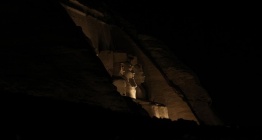
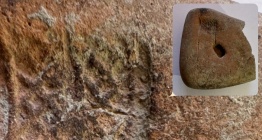
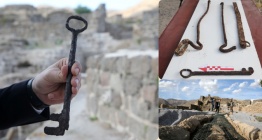
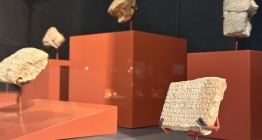
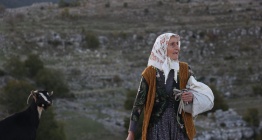


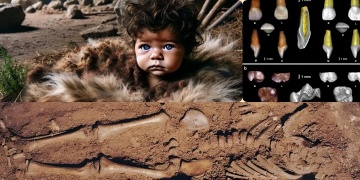 Buz devrinde 16 aylıkken ölen bebeğin mavi gözlü olduğu anlaşıldı
Buz devrinde 16 aylıkken ölen bebeğin mavi gözlü olduğu anlaşıldı 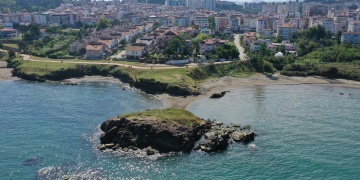 Ayanikola Kilisesi Restorasyon ve Çevre Düzenleme Projes hayata geçiriliyor
Ayanikola Kilisesi Restorasyon ve Çevre Düzenleme Projes hayata geçiriliyor  Tarihi Kentler Birliği'nin ekim ayı encümen toplantısı, Şanlıurfa'da yapıldı
Tarihi Kentler Birliği'nin ekim ayı encümen toplantısı, Şanlıurfa'da yapıldı 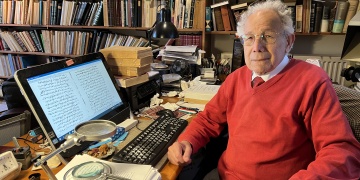 Yazma Eserler uzmanı Prof. Dr. Kasım Al-Sâmerrai: Oryantalistler dilin fıkhını bilmiyor
Yazma Eserler uzmanı Prof. Dr. Kasım Al-Sâmerrai: Oryantalistler dilin fıkhını bilmiyor 




